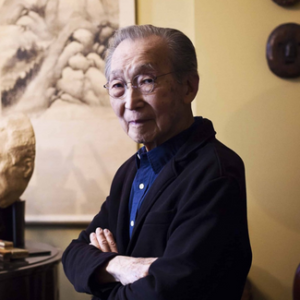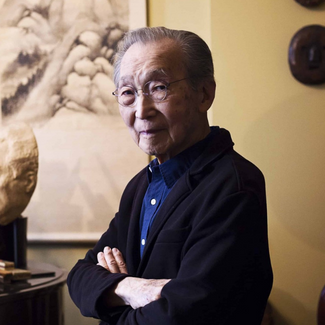
Chou Wen-Chung was born in Yantai, China, in 1923, and moved to the United States in 1946. His earliest work, Landscapes, written in 1949, is often cited as the first composition in music history that is independent of either Western or Eastern musical grammar. The piece premiered in 1953 with the San Francisco Symphony, conducted by Leopold Stokowski, and launched the young composer onto a career which steadily gained in momentum over the next two decades.
His unique canon of work, a contemporary expression of the principles of traditional Chinese aesthetics, has had a momentous impact on the development of modern music in Asia and in post-colonial cultures. He exhorted young composers to study their own cultural heritage and warned: “If you don’t know where you came from, how do you know where you are going?” His students represent an international mix of accomplished composers, including the acclaimed Tan Dun, Zhou Long, Chen Yi and Bright Sheng. His vision for the music of the future, however, extends far beyond the preservation of any particular heritage. He foresaw a flourishing of creative output, benefitting from a “confluence” of many cultures, but grounded in an understanding of the history and traditions of each.

